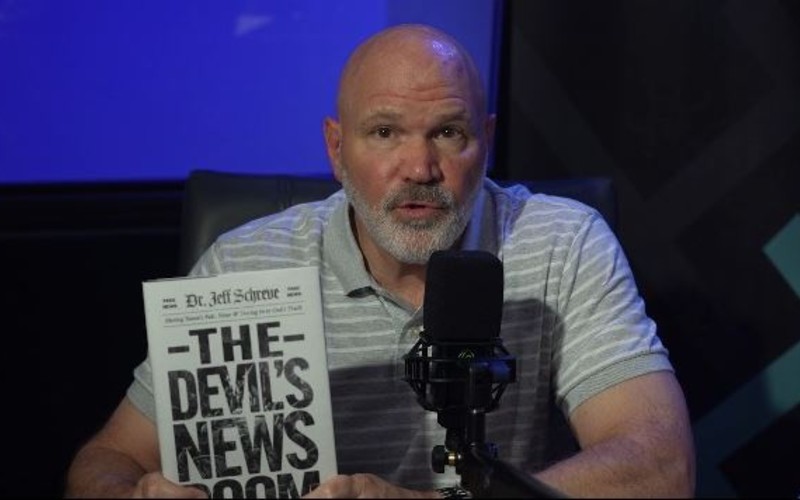Despite its bias, NPR just may have a solid case because of a second factor, attorney Gerard Filitti told American Family Radio Wednesday.
That’s because the second half of the lawsuit, filed by NPR and three of its Colorado affiliates against President Donald Trump, also addresses the president’s ability to withhold funding that Congress has designated for a specific use.
The Corporation for Public Broadcasting, created in 1967 by the Public Broadcasting Act, was set up as a private, nonprofit, independent body to promote public telecommunications services and to provide financial support for noncommercial educational television and radio stations.
 The CPB allocates roughly $535 million annually to NPR and Public Broadcasting System (PBS), the television wing.
The CPB allocates roughly $535 million annually to NPR and Public Broadcasting System (PBS), the television wing.
NPR is estimated to receive about $120 million in 2025, significant in real money terms but representing less than 5% of the organization’s budget.
Trump on May 1 signed an executive order headlined in the news release with “Ending Taxpayer Subsidization of Biased Media.” The headline tells you all you need to know.
The administration contends government-subsidized news coverage may have been necessary in 1967 but isn’t today with a “media landscape filled with abundant, diverse and innovative news options.”
“The CPB’s governing statue reflects principles of impartiality,” the administration says, noting that statute says that CPB may not “contribute to or otherwise support any political party.”
Neither NPR nor PBS “presents a fair, accurate or unbiased portrayal of current events to taxpaying citizens,” the administration says.
Conservative taxpayers funding liberal viewpoints
Americans have a right to expect unbiased coverage for their tax dollars, and the government has a right to decide which activities it will subsidize, the administration contends.
It may be on solid ground with those arguments.

But the lawsuit looks at how the government makes those decisions and argues that the executive branch cannot unilaterally decide to withhold funds previously designated by Congress for a specific purpose.
That’s where NPR could be on solid ground, Filitti told show host Jenna Ellis.
“The statute, when Congress wrote this law five decades ago, basically it didn't clarify how it could be terminated or how it could be suspended or anything along those lines. It provided that the president would appoint members of its board in consultation with Senate leaders of both parties, but it didn't say anything about removing people. It didn't say anything about funding. It left it vague,” Filitti said.
The best move for the administration to weaken this argument would be to get Congress involved, Filitti said.
Republicans currently have majorities in both the House and Senate, however slim they may be.
“Congress is funding CPB. Congress is funding NPR and PBS. Congress could act to cut that funding. It doesn’t need to include it in the budget. It doesn't need to put President Trump in the position of issuing executive orders. So, Congress could be doing a lot more to help President Trump,” Filitti said.
It could start by clarifying how NPR and PBS should operate within the Corporation for Public Broadcasting.
“Right now, we have an agency hat’s set up by an act of Congress, but it’s not directly controlled by the executive branch, nor is it controlled by Congress. They’ve created this independent monster that’s very hard to reign in,” Filitti said.
 That may be why the Trump administration has chosen to attack NPR through executive order and take its chances with the courts.
That may be why the Trump administration has chosen to attack NPR through executive order and take its chances with the courts.
The administration has focused a great deal on getting the “Big Beautiful Bill” across the finish line, less on individual Trump agenda line items like CPB funding.
The strategy seems to be to test the waters through executive order first.
“They have a very ambitious view that if what they’re doing can potentially succeed under executive order then they don’t need to go through negotiating things with Congress. They don’t need to ask for help when they can just act unilaterally,” Filitti said. “We’ve seen that with other Trump executive orders. He’s looking to take decisive action because Congress has done nothing for decades even when it’s been under Republican control.”
Trump vs. Congress
Trump should be putting more pressure on Congress, Filitti said.
“Even with this Big Beautiful Bill, it’s so simple to not include budget items for things that Trump does not want. Why are NPR and PBS getting $500 million-plus when Congress could put in $1? That would solve the problem.”
Filitti believes Trump will come to the realization that, like it or not, he’s going to have to work with Congress.
“He shouldn’t be doing this alone. He needs help. The people that voted for him also voted for Congress to act on his behalf … on behalf of the American people.”







